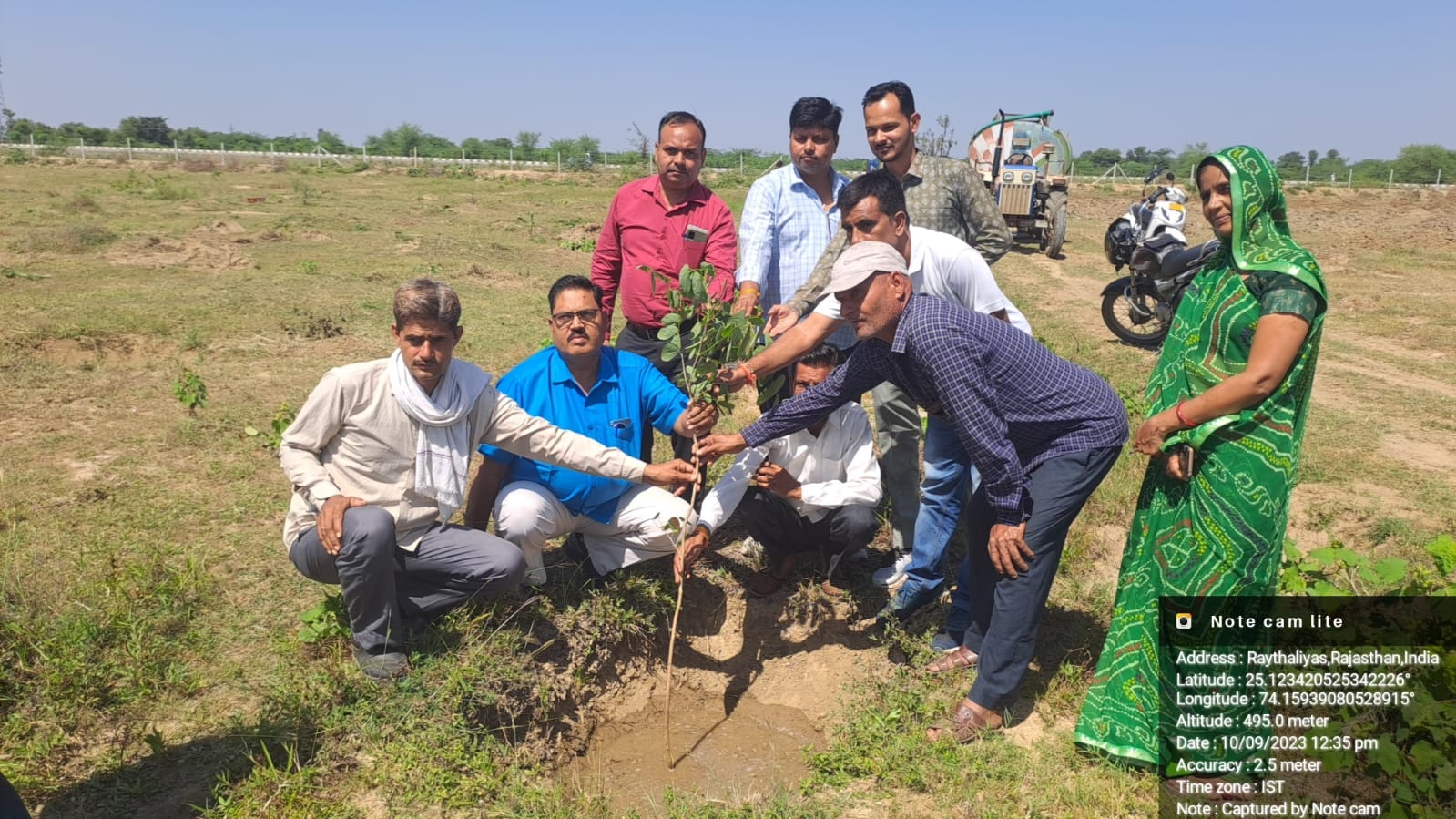

GPS Renewables Partners with Hasten Forestry India for Regenerative Circular Bioenergy System
GPS Renewables, full stack technology and engineering company focused on clean fuels, has partnered with Hasten Ventures, a nature based solutions company, to introduce ‘Regenerative Circular Bioenergy System’ that combines forestry and bioenergy, representing a significant step towards addressing critical climate challenges. This project, set to be executed in Junda Village, Jaipur, Rajasthan, addresses all three pillars of sustainability, including environmental, financial and social sustainability.
The project has already been kickstarted and the goal is to plant 16,000 saplings across 50 acres.
The Regenerative Circular Bioenergy System (RCBS) is built on three core principles
The RCBS system comprises three key sub-systems that work together to achieve a net-negative carbon impact.
Deep synergies exist between these subsystems, ensuring both commercial viability and a positive climate impact. Forestry enhances crop lands by increasing fertility, water availability, and improving the microclimate. Napier Cultivation guarantees a constant supply of feedstock for the Bioenergy plant. The Bioenergy plant, in turn, supplements the forestry economically during its initial years until the forest becomes economically self-sufficient and can generate income from carbon markets. The climate impact is two fold with forestry resulting in sequestration of carbon and the CBG plant output directly substituting use of fossil fuels.
Commenting on the project, Mainak Chakraborty, CEO and Co-Founder of GPS Renewables, said, “A first-of-its-kind concept, GPS Renewables is pioneering a uniquely designed decarbonization project that leverages a combination of forestry and bioenergy to establish a self-sufficient regenerative ecosystem. By integrating the two, our aim is to not only enhance climate impact but also empower local communities. This project addresses the crucial pillars of environmental, financial, and social sustainability.”
“The Regenerative Circular Bioenergy System underscores our commitment to sustainable bioenergy solutions. We believe in partnering with like-minded organizations like Hasten Ventures that are focused on finding new ways to address climate change to create a greener and more sustainable future.” Mainak added.
Pradyot Porwal, Co-Founder and CEO, Hasten Forestry India, said, “The RCBS system is a key step to go beyond sustainability and embrace regenerative economic models. In order to tackle climate change, businesses will have to proactively invest in creating a positive nature-impact. We are glad to partner with pioneer organizations like GPS Renewables to help create a win-win situation for the climate and the local communities in a responsible manner.
Other project partners include Arpan Seva Sansthan, a nonprofit organization that will focus on facilitating communication with local government bodies and farmers. Envint, serving as the social impact assessment partner, will contribute valuable insights. Furthermore, Tamil Nadu Agricultural University will collaborate on designing experiments related to feedstock trials.
In a significant move toward advancing green energy and industrial growth in the state, Himachal…
Golabl chemical conglomerate BASF has announced that its now offering the world’s first biomass-balanced polyethersulfone…
In a crucial stint to bolster the biogas sector and sustainable dairying in the country,…
TotalEnergies SE has received approval to proceed with its Middlebrook solar and battery project in…
Andhra Pradesh Chief Minister Chandrababu Naidu has inaugurated the Rs 1,000-crore green hydrogen plant of…
The BITS Pilani has developed an innovative solution for managing landfill leachate, domestic septage, and…
View Comments
Everythig is very open with a very clear explanation oof the issues.
It wwas truly informative. Yourr website iis useful.
Thank yyou for sharing!